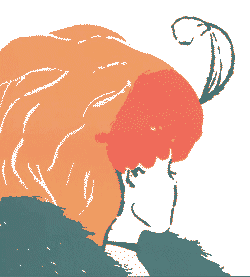I noticed a result of combining two previous divrei Torah. Before reading the following, see Bemachashavah Techilah for parshiyos
Bo and
Beshalach. In the first, I explore the question of Hashem making it impossible for Par’oh to change his mind. Isn’t that a violation of Par’oh’s free will? I elaborate on the Sefornu’s answer that in truth, Par’oh’s witnessing miracles was a supernatural intervention that would have influenced his decision. Hashem’s preventing Par’oh from remaking his decisions based on that evidence actually
preserved his free will from such supernatural intervention. This is why the Torah’s shift from saying that Par’oh immobilized his own heart to saying that Hashem did it was with
makas shechin (boils), the plague that made his magicians “unable to stand before Par’oh”. At that point he no longer had a balance between miracle and magic, and miracle could unduly influence him.On parashas Beshalach I presented the Maharal’s view, that miracles in fact could occur all the time — if we were on the level to observe them. And so for Yehushua and the Jewish people, the sun stood still; but for the rest of the world, nature ran its course. Rav Dessler explains this idea further. Someone who lives a more physical lifestyle sees the laws of physics as absolute. And the higher law, involving notions of justice, oppression, right, wrong, etc… seems more relative. However, to someone who lives his life focusing on the higher plane, the laws of nature seem relative, and the higher law becomes absolute. That’s how the same liquid could be water and blood simultaneously; physical reality became a relative thing. To Rav Dessler, this is an extension of the idea that when a shoemaker walks down the street, he sees a see of shoes; when a tailor walks down the same steet, he all he sees is clothing. People see what they’re attuned to see — even nature vs. miracle.
However, I noticed since writing those divrei Torah that in fact the plagues were a reversal of this order. The righteous experienced nature, to them water remained water, but the baser community, the Egyptians, experienced its miraculous transformation into blood. This observation is not made by Rav Dessler, and this is not Rav Dessler’s resolution of the question of Par’ohs free will. But it would seem to me that perhaps this is why the plagues in particular would be a violation of free will.
Psychologists debate the roles of nature vs. nurture in forming human nature. But by focusing on this debate, one is looking at the initial formation of personality, how a person is shaped before they take the reins of their own life. People have free will; they have the power to shape themselves.
Often people have little control over the world around them and what happens to them. In fact, the primary choice people have is how they choose to react internally to a situation, the choice of how they perceive what’s happening.
Usually, the only person who witnesses a miracle is seeing the world though his own perspective. The miracle only proves the perspective he himself brings to the world. “In the path that a person wants to go, that’s the way they take him.” This wasn’t true of the makkos. But this is not only true of most miracles; this is true of all the events we witness in our own lives. Our lives may be determined by our environment, but what elements of our environment come to the forefront and which remain in the background lies within our choice.





No Responses
[…] perceptions and responses. We do not respond to the world, we respond to how we perceive the world. A while back I wrote about the conflict in psychological circles about the origins of our personalities, the famous […]
[…] Free Will and Environment […]
[…] Free Will and Environment […]
[…] Free Will and Environment […]